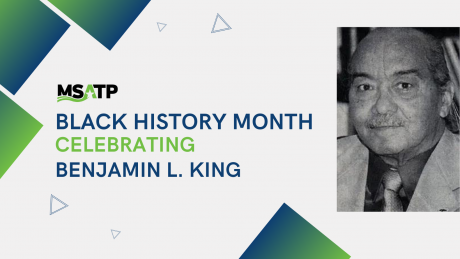
John W. Cromwell, Jr. became the first black CPA in America in 1921; however, it wasn’t until over three decades later that Maryland would see its first black CPA: Benjamin L. King.
Born and raised in Washington, D.C., King graduated from Dunbar High School and went on to obtain his bachelor’s degree in accounting from Virginia State College in 1949. Soon after, he served during the Korean War in the Army Audit Agency until 1952. After returning home, he continued his education by taking graduate accounting classes at American University. Doing so opened the possibility to sit for the CPA exam in D.C.; however, he needed to gain two years’ work experience first.
D.C. was full of white-owned firms who wouldn’t hire a black accountant, even despite King’s offers to work for free. When he did find one of the only black CPA’s in the area, the CPA told King he would not hire him as it would only create a competitor. From that moment, King determined that he would never refuse anyone help the way he had been refused.
After discovering that Maryland did not have a work requirement to sit for the CPA exam, King moved his family to Seat Pleasant. In June of 1957, he became the first black CPA in Maryland—and only the 54th in the entire nation.
King eventually established his business in Baltimore, where he became the primary CPA for small, black-owned businesses in the area. He partnered with Art Reynolds in 1958, another black CPA, and began teaching at Morgan State University. There, he encouraged students to become accountants and either hired or helped them land a position elsewhere after they graduated.
In 1969, he was appointed to the Maryland State Board of Public Accountancy and became chairman. In 1973, King founded the Baltimore chapter of the National Association of Black Accountants, sitting as President twice. To this day, the Baltimore chapter continues to support young tax professionals the way King did until his death in 2005 at the age of 77.
Upon his death, King left behind five children—four of whom became accountants and three of whom continue to run King, King & Associates in Baltimore, the firm that their father created.
The firm still has some of King’s original clients, and the three children maintain their father’s legacy by actively supporting young black accountants in Maryland.
